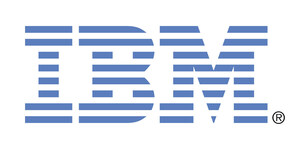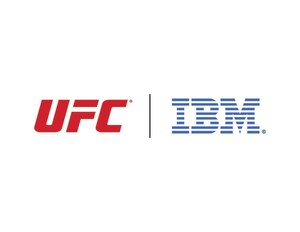IBM's World Community Grid hosts Scripps Research project to help scientists virtually screen chemical compounds that might help fight COVID-19
NEW YORK, April 1, 2020 /PRNewswire/ -- IBM (NYSE: IBM) today announced that anyone in the world with a PC, laptop or Mac and an Internet connection could help scientists seek chemical compounds that might be effective against COVID-19.
To do so, volunteers' devices will perform small, virtual experiments to identify chemical compounds, including those in existing medicines, that could potentially be used as treatments candidates for COVID-19. Compounds that show promise for treating COVID-19 will undergo further testing and analysis.
The project, designed and led by Scripps Research, will be hosted on IBM's World Community Grid, a trusted, crowdsourced computing resource provided at no charge for scientists. Volunteers download an app that works when their devices are otherwise idle or in light use. Operating unobtrusively in the background without slowing users' systems, the app distributes computational assignments and returns completed calculations to researchers, all via the IBM cloud.
Volunteers need not have any special technical expertise to participate; the process is automatic. Personal information is never shared, and the software cannot access personal or business files. Please click here to sign up.
With IBM's World Community Grid crowdsourcing power from thousands of computing devices, the project, called "OpenPandemics - COVID-19," will easily be able perform hundreds of millions of calculations needed for simulations. This could potentially help scientists accelerate the drug discovery or drug re-purposing process, traditionally performed more slowly in a traditional, "wet" laboratory. As with all World Community Grid projects, data generated by this effort will be made publicly available.
"IBM's World Community Grid is a resource that not only empowers scientists to accelerate vital work on a large scale, but also gives volunteers a sense of empowerment, joining with others all over the globe to make a difference," said Guillermo Miranda, VP and head of corporate social responsibility at IBM. "During a time of social distancing and isolation, this sense of purpose and interconnectedness is as important as ever."
While the project will initially focus on COVID-19, Scripps Research also plans to develop tools and methods to allow future drug discovery projects to ramp up quickly, such as during other pandemics.
"Scripps Research is grateful to IBM for hosting our project on World Community Grid," said Stefano Forli, PhD, assistant professor in the Department of Integrative Structural and Computational Biology at Scripps Research, and director of the project. "Tapping the unused processing power on thousands of idle computing devices provides us with an incredible amount of computing power to virtually screen millions of chemical compounds. Our joint effort with volunteers all over the world promises to accelerate our search for new, potential drug candidates that address present and future emerging biological threats, whether it is COVID-19 or an entirely different pathogen."
The OpenPandemics - COVID-19 project on World Community Grid complements the other resources IBM has recently made available to researchers fighting COVID-19. For example, the IBM POWER9-based Summit supercomputer has already been used by researchers at Oak Ridge National Lab and the University of Tennessee to identify 77 chemical compounds from a pool of 8,000 that could potentially fight the virus.
World Community Grid, a trusted IBM corporate social responsibility initiative, is a longstanding effort provided free of charge to scientists who need massive computing power to study humanitarian issues. The World Community Grid software allows people to use their computers as normal without compromising data safety or speed.
To date, more than 770,000 people and 450 organizations have contributed nearly two million years of computing power to support 30 research projects, including studies on cancer, Ebola, Zika and malaria and AIDS, as well as projects for developing better water filtration systems and solar energy collection. Data from World Community Grid projects are always shared with the world, and so far more than 50 peer-reviewed scientific articles have been published. The computing power is provided free of charge on the basis of crowdsourcing, allowing researchers to scale up research, pursue new research approaches and accelerate processes.
For more information about Scripps Research's project on World Community Grid, please click here.
Media Contact:
Ari Fishkind, IBM media relations
[email protected]
SOURCE IBM
WANT YOUR COMPANY'S NEWS FEATURED ON PRNEWSWIRE.COM?
Newsrooms &
Influencers
Digital Media
Outlets
Journalists
Opted In





Share this article